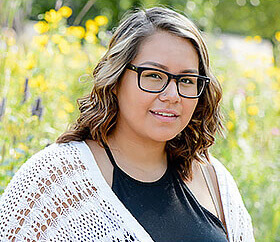Self Esteem & Acceptance
What is self-esteem?

Self-esteem is how you think and feel about yourself. Self-esteem comes from comparing who you think you are with who you want to be.
Having self-esteem means being proud of who you are as a person and what you’ve accomplished instead of thinking badly about yourself.
Are there any abilities or characteristics that you feel proud of, or do you always feel like you are not good enough?
These are important things to think about as you grow and develop. Everybody has qualities and areas that they could improve on – after all, nobody is expected to be perfect. Though it may seem difficult at times, valuing and finding the good in yourself can really help you to deal with challenging times.
Take the Self Esteem Self-Check to find out more.
How can self-esteem help?
- Having confidence in yourself helps you feel comfortable to try new activities and learn new skills, so that you can have even more accomplishments to be proud of.
- Trying new activities means you will meet lots of different people, and also find out what your strengths are.
- When you feel good about yourself, you are more likely to succeed in your goals.
- Positivity is contagious! When you like yourself you are more likeable to others, and you can even help others to feel better about themselves, too.
- Confidence will be even easier to achieve if you accept that it’s okay not to succeed sometimes. Nobody is good at everything, but most everyone is really great at something.
Struggling with self-esteem
Struggling with self-esteem is normal for everyone – especially during your teen years. Teens are still growing and developing, so it’s common to feel like you don’t know who you are yet – you are still trying to figure out what you want to do in life, what you like and don’t like, and even who you are.
Some factors that might affect your self-esteem include:
- People in your life telling you negative things about yourself. This includes putting you down or criticizing you in a way that isn’t helpful.
- Being self-critical, which means frequently thinking badly of how you look, what you do or how you are in general.
- Experiencing a trauma in your life, such as a death in your family or in your community. Trauma and negative events affects us negatively in general.
- Having difficulty in school, with friends, in relationships, in sports or at work. Struggling in any of these areas can make you feel like you aren’t good enough.
It’s helpful to remember that these kinds of difficulties often don’t last long, situations can change and if you need help, it’s there. If you’re constantly thinking negative thoughts about yourself, don’t be afraid to reach out for help.
Getting help
Try approaching a trusted adult in your life – an Elder, counsellor or teacher can often help.
What is self-acceptance?
Self-acceptance is similar to self-esteem, but is less about feeling bad and more about:
- Loving yourself as you are, flaws included.
- Loving who you are today – not who you want to be down the road or after you have achieved a goal for yourself (for example, loving yourself only after you lose weight, make a team or pass a test).
- Taking care of yourself daily.
- Having compassion for yourself – especially when you mess up a situation or make a mistake. Being able to forgive yourself is a big part of self-acceptance.
- Having compassion towards others, also helps to develop compassion for yourself. Try to practice being non-judgmental towards others, and try to understand that everyone’s life has challenges and struggles, just like yours does.
If you accept yourself for who you are, you are more likely to make better choices in all areas of your life. Making good choices means that you will be better able to achieve other goals and develop other abilities.
Self-acceptance means knowing no one is perfect and understanding that everyone has value – including you. A sense of humour is a great way to develop self-acceptance. Laughing at yourself from time to time can help you to accept your unique qualities and promotes a sense of well-being.
Ten hacks to improve self-acceptance and self-esteem
- Journal:
Start writing down your thoughts, hopes and dreams on a regular basis. Your journal can be any kind of booklet – an exercise book, a ring coiled workbook or a blank book you can get at the dollar store. You can even journal online. No matter where you journal, be sure to keep your writing private until you’re really sure that you want to share it – and only share it with someone you trust. What you write in your journal can help you figure out who you are and what you like and dislike. Try to focus on self-acceptance in your journal – if you write down something that upset or embarrassed you, try to find the compassionate, forgiving side of yourself and balance out the things that made you feel bad. Have fun with your journal, and make it a positive part of your day. In your journal, you can include:- Stickers, doodles or sketches;
- Poems and song lyrics – either ones that you like or ones that you’ve written yourself; and
- “Top ten” lists of your favourite songs, movies, books, foods, etc.
- Positive self-talk:
Tell yourself positive things instead of negative. Instead of saying, “I suck,” you could say “I’m okay.” Eventually, instead of saying “I’m okay,” you might be saying, “I’m great!” Once you start challenging your negative thoughts and replacing them with positive ones, it will become a habit, and your self-esteem will improve as a result. Check out these tips on how to talk positively to yourself. - Focus:
Instead of focusing on what hasn’t gone well, focus on the things you’re good at, even if they seem small – every step counts! - Learn:
Try learning about mindfulness, which means taking care of your mind, body and spirit by focusing on living in the moment. See the page on mindfulness in Teen Stress Hacks for some pointers on how to do this. (link ) - Positivity:
Surround yourself with good people – find those friends and family members who make you laugh and feel good about yourself. Do activities with them that are fun and make you feel valued. - Get active:
Find productive ways to spend your spare time – take up a hobby, volunteer, join a group or help out at home. Filling up your spare time by doing something that matters to you will help you to feel good about yourself. - Take a compliment:
The next time someone says something nice to you, try to just say thanks instead of countering the compliment with “yeah, but…” If you say something like “yeah, but I did crappy at that last time” or “yeah, but my hair sucks” whenever you receive a compliment, you erase the good feelings that the compliment was meant to provide. Try to accept a compliment with a simple “thanks!” and see if you feel any differently afterwards. - Don’t believe everything you see:
Pictures of attractive youth or celebrities in magazines or online are not very realistic. Try to remember that these images likely have been photo-shopped or re-touched or, at the very least, were taken after a session with professional make-up artists. These effects can make a big difference in how people appear and can cause you to make unrealistic comparisons that make you feel bad. - Try to avoid “I should have” or “I could have” statements.
If you tend to look back and criticize how you behaved or handled a situation, you are practicing negative self-judgment, which is pretty hard on self-esteem and self-acceptance. Instead, think of hindsight as an opportunity to be compassionate towards yourself and try to focus on the fact that you did the best you could in a given situation. You can plan on improvement for next time, but try not to beat yourself up about what has already happened. - Congratulate yourself!
If you made good effort, tried your best if you’re just proud of being you, give yourself a pat on the back! Find the value in yourself and accept yourself for who you are every day. The more you do it, the easier it will become.
Keep trying – you can change your self-esteem for the better, and make a positive difference in your own life!





